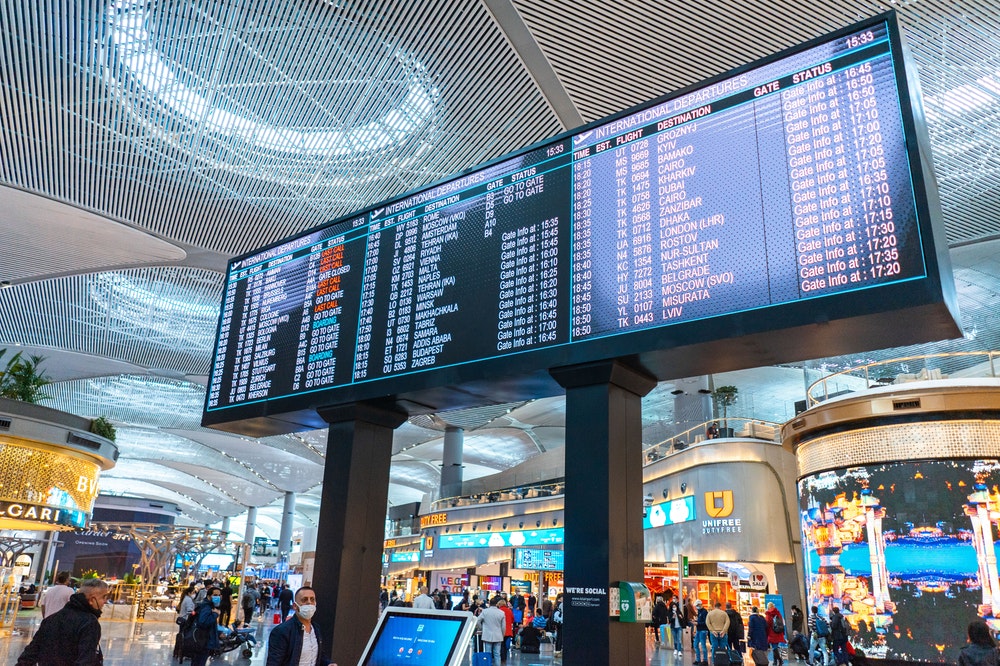Yes, EC261 applies in the UK.
Even after Brexit, the European Union Regulation EC261/2004 continues to safeguard air travellers in the UK. Due to this regulation, if your flight is delayed or cancelled, you might be eligible for compensation and other benefits like food and accommodation.
However, there are some changes that you need to know about.
Check your compensation online.
Understanding the Basics of EC261
EC261 is a regulation that provides air passengers with specific rights if their flight is interrupted. Created in the European Union, it aims to guard travellers against the trouble of delays and cancellations. Under EC261, passengers can receive compensation, assistance, and refunds, depending on the situation.
For instance, a delay exceeding three hours on a flight up to 1,500 kilometres entitles you to €250.
When Does EC261 Apply?
EC261 is relevant to all flights that start from Europe, no matter which airline you are flying with.
It also includes flights run by airlines based in Europe that are landing in Europe.
To make it easier, on this website, we often use the terms “Europe” and “European airline”.
- When we say Europe, we are talking about all the countries where this rule applies.
- By “European airline,” we refer to an airline that is registered in a European country.
By Europe and EU here on this page we mean all EU Member States, the United Kingdom (UK), Guadeloupe, French Guiana, Martinique, Reunion, Mayotte, Saint Martin (French Antilles), the Azores, Madeira, the Canary Islands, Iceland, Norway, and Switzerland.
Post-Brexit Changes to EC261
Although these rules initially covered both EU and UK flights, Brexit has brought some adjustments.
The most significant change is that there are now two separate regulations.
UK261: The UK’s Version of EC261
Following Brexit, the UK implemented its own regulation equivalent to EC261, called UK261.
This rule closely resembles EU261’s standards, guaranteeing that passengers on flights within the UK maintain similar rights (they are 99% identical). UK261 applies to flights departing from or arriving at UK airports, as well as those flights managed by UK-based airlines.
Key Differences Between EU261 and UK261
Even though they are quite similar, there are some differences between EU261 and UK261.
One key difference is the area of coverage. This means that flights taking off from or landing in the UK might be subject to different rules, based on the route and airline.
The route you are travelling on is important.
And the airline you choose to fly with is important.
If it’s a UK airline:
- UK261 applies to all their flights.
- EC261 applies to their flights between EU countries, from the EU to the UK, and from the EU to any other country.
If it’s an EU airline (including EEA):
- UK261 applies to their flights from the EU to the UK, from the UK to the EU, within the UK, from the UK to any other country, and from a non-EU country to the UK.
- EC261 applies to all their flights except for those within the UK, from the UK to another country, and from another country to the UK.
The key difference is understanding which regulation to use when you make a compensation claim. The rights themselves remain the same.
Here’s a brief summary of what you need to know:
- Sometimes, you can refer to both EC261 and UK261.
- Other times, you need to refer to only one of them (based on the route and the airline).
- They offer the same protections for you as an air passenger.

Real-Life Scenarios and Examples
To provide a clearer understanding of the application of EU261 and UK261, let’s look at some real-world situations and instances.
Scenario 1 – Delayed Flight from London to Paris
Picture yourself on a flight from London to Paris, only to face a four-hour delay.
As the flight is departing from a UK airport and going to an EU destination, both EU261 and UK261 regulations might apply. You can refer to both rules when filing a claim.
Next, consider which airline operated the flight.
If it’s a UK airline, you are only covered under Regulation UK261. EC261 doesn’t apply in this case.
If it’s an EU airline, you are covered by both regulations.
If it’s an airline registered outside the EU and the UK, only the UK regulations apply because the flight departed from a UK airport.
Read more: KLM Flight Delay Compensation
Scenario 2 – Cancelled Flight from New York to London
Imagine your flight from New York to London gets cancelled.
In this situation, you are protected by UK261.
This is because your destination is in the UK.
In this context, regardless of whether the airline is based in the EU or the UK, if you’re flying to the UK from a third country on an EU airline, EU261 doesn’t apply. The relevant regulation is UK261.
If your flight from New York to London is with a non-EU/non-UK airline (for instance: Delta, American Airlines, etc.) then your flight falls outside the EU and UK regulations. As such, you are not eligible for compensation in these cases. For flights with non-EU/non-UK airlines, compensation regulations only apply to departures from the EU or UK.
Read more: KLM Flight Cancellation Compensation
Scenario 3 – London – Bangkok Flight Disruption Due to Bad Weather
Your flight will be delayed or cancelled.
The cause for this disruption is poor weather conditions.
In these situations, airlines don’t have to pay compensation under both EU261 and UK261. Such conditions are called extraordinary circumstances.
However, airlines must still offer assistance, such as food and a place to stay during the delay. This is known as the right to care – just reach out to the airline to get these services.
Since the flight is leaving from Europe (UK, EU, EEA), it does not matter which airline you are travelling with, you have the right to this assistance. It can be an airline from Singapore, Qatar, Australia, the US, or anywhere else.
Do you have more questions about EC261 and flight compensation? Ask in the comments.
